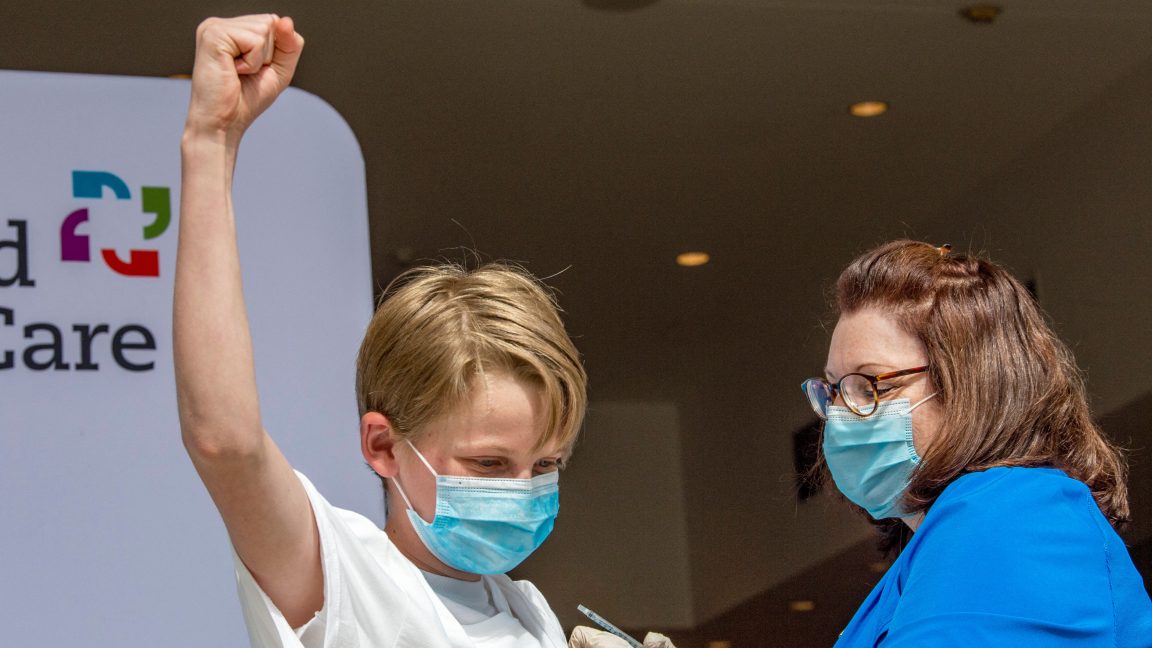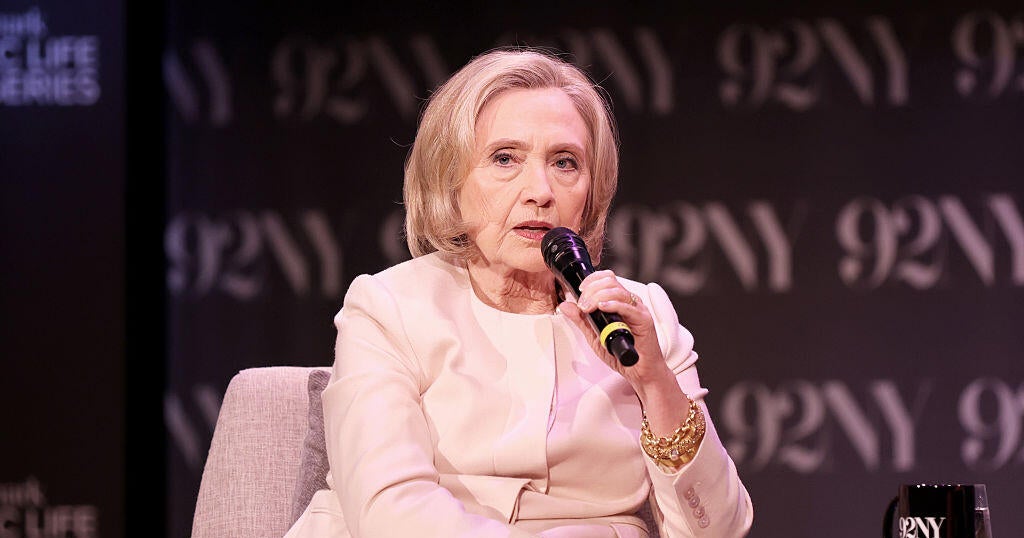The Vaccination Debate: Robert F. Kennedy Jr. Versus The American Academy of Pediatrics

Introduction
In the midst of the ongoing pandemic, the debate over childhood vaccinations has once again come to the forefront. Recently, Robert F. Kennedy Jr., a well-known anti-vaccine activist, has taken aim at the American Academy of Pediatrics for their recommendation to get young children vaccinated against Covid-19. This has sparked a heated discussion between the pediatricians' group and Kennedy, as well as the general public.
Key Details
The American Academy of Pediatrics has been advocating for childhood vaccinations for years, citing the importance of protecting children from preventable diseases. Their recent push for Covid-19 vaccinations has been met with backlash from those who are skeptical of the safety and effectiveness of the vaccine. Kennedy, who has been vocal in his opposition to vaccines, has accused the pediatricians' group of being influenced by pharmaceutical companies and undermining parental rights.
The debate has only intensified as the Centers for Disease Control and Prevention (CDC) recently reported that Covid-19 cases among children are on the rise. The pediatricians' group has stood firm in their recommendation, emphasizing the scientific evidence and safety protocols in place for the vaccine.
Impact
The clash between RFK Jr. and the American Academy of Pediatrics highlights the continued divide in the debate over vaccinations. The rhetoric used by Kennedy and other anti-vaccine activists has caused confusion and hesitation among some parents. However, the
About the People Mentioned
Robert F. Kennedy Jr.
Robert F. Kennedy Jr. is an American politician, environmental lawyer, and author, born on January 17, 1954, in Washington, D.C. He is the third of eleven children of Robert F. Kennedy, the U.S. Attorney General, and Ethel Skakel Kennedy. His family's political legacy includes his uncle, President John F. Kennedy. Kennedy's early life was marked by personal struggles, including drug addiction, which led to his arrest for heroin possession in 1983. However, he later redirected his life towards environmental advocacy and public service. Kennedy graduated from Harvard University in 1976 with a degree in American history and literature and later earned a law degree from the University of Virginia in 1981. He began his career as an assistant district attorney in Manhattan but soon shifted his focus to environmental law. In 1987, he received a master's degree in environmental law from Pace University, where he taught environmental law from 1986 to 2018 and co-founded the Environmental Litigation Clinic. Notably, Kennedy is the founder of the Waterkeeper Alliance, a global clean water advocacy group, and Children's Health Defense, which focuses on childhood chronic diseases and environmental exposures. He has been recognized for his environmental activism, including being named TIME Magazine's "Hero for the Planet" for his efforts in restoring the Hudson River. Kennedy has also been involved in high-profile legal cases against companies like DuPont and Monsanto. In recent years, he has been a vocal figure in vaccine skepticism and public health controversies. In the 2024 U.S. presidential election, Kennedy initially ran as an independent candidate before endorsing Donald Trump. Currently, his involvement in public life includes controversial stances on health and environmental issues. Despite these controversies, his work in environmental law and advocacy has had significant impacts on public health and environmental protection.
About the Organizations Mentioned
American Academy of Pediatrics
The **American Academy of Pediatrics (AAP)** is a leading professional organization dedicated to promoting the optimal physical, mental, and social health and well-being of infants, children, adolescents, and young adults. Founded in 1930 by 35 pediatricians responding to the need for an independent forum to address children’s unique healthcare needs, the AAP has grown to approximately 67,000 members across the United States, Canada, Mexico, and beyond, including pediatricians, medical subspecialists, and surgical specialists[1][3][4]. The AAP’s mission centers on supporting its members professionally while advocating for children’s health through evidence-based policies, education, and research. It provides extensive continuing medical education (CME) programs, scientific meetings, seminars, and a broad range of publications, including the flagship journal *Pediatrics* and the news magazine *AAP News*. Its publishing program is the largest pediatric resource globally, offering over 800 titles for consumers and healthcare professionals[4]. Governed by a board of directors led by an executive committee, the organization operates through various departments and more than 40 specialized committees that address issues such as injury prevention, nutrition, child health financing, and care for children with disabilities[3][5]. The AAP also maintains a network of chapters serving U.S. states and Canadian provinces, allowing it to address local as well as national priorities[5]. Among its key achievements, the AAP has been instrumental in establishing pediatric healthcare standards, advocating for immunization schedules, and issuing timely guidance on public health crises, such as weekly COVID-19 reports tracking pediatric cases and hospitalizations in the U.S.[4]. The organization’s emphasis on preventive care transformed pediatric medicine, shifting the paradigm from treating children as "miniature adults" to recognizing their unique developmental needs[3]. Currently headquartered in Itasca, Illinois, with an office in Washington, D.C., the AAP continues to influence pediatric healthcare policy, education, and practice globally. Its
Centers for Disease Control and Prevention
The Centers for Disease Control and Prevention (CDC) is a premier U.S. public health agency established on July 1, 1946, originally as the Communicable Disease Center. It evolved from the wartime Malaria Control in War Areas program (MCWA) created during World War II to combat malaria around military bases in the southern United States[1][3][7]. Headquartered in Atlanta, Georgia, the CDC has grown from a regional malaria control unit to a comprehensive national and global health protection agency. The CDC’s mission is to protect public health and safety through disease control and prevention, health promotion, and emergency preparedness. It investigates and responds to emerging health threats such as infectious diseases—including COVID-19, influenza, and bioterrorism agents—as well as chronic diseases, injuries, workplace hazards, environmental health threats, and more[2][6]. The agency conducts scientific research via over 200 specialized laboratories nationwide, supports public health workforce development, and communicates critical health information to the public[6][5]. Throughout its history, the CDC has expanded its scope and structure significantly. It was renamed the Center for Disease Control in 1970, then the Centers for Disease Control in 1980 as it incorporated multiple centers, and finally adopted the current name, Centers for Disease Control and Prevention, in 1992 to emphasize prevention efforts while retaining the CDC acronym for recognition[2][8]. Its organizational breadth now includes centers focused on infectious diseases, chronic diseases, environmental health, injury prevention, occupational safety, and health statistics. Notable achievements include leading vaccination campaigns against diseases like measles and rubella, advancing injury prevention, and mounting global efforts against infectious outbreaks. The CDC also played a pivotal role in combating antibiotic misuse and bioterrorism preparedness. Despite past controversies like the Tuskegee syphilis study, the agency remains a leader in epidemiology and public health innovation, employing a multidisciplinary workforce of scientists, clinicians, and public health experts dedicated t

















